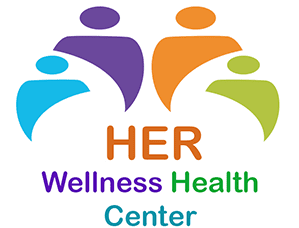Click HERE To Buy Zoloft Online ↓

Understanding Zoloft: What Is It and How It Works
Zoloft, known generically as sertraline, is among the most commonly prescribed Rx for treating depression and anxiety. It's categorized as an SSRI (Selective Serotonin Reuptake Inhibitor) and works by increasing serotonin levels in the brain, which helps improve overall mood and emotional stability. Imagine Zoloft as an elixir that balances your neurotransmitters, making life's ups and downs more manageable.
When a person gets their script filled for Zoloft, the instructions, or "sig," from the doctor are crucial. The medication needs to be taken consistently as per the directions to ensure its efficacy. Understanding how Zoloft works not only demystifies this medication but also underscores the importance of adhering to precise dosing, contributing to better mental health outcomes.
| Term | Definition |
|---|---|
| Script | Prescription |
| Elixir | A sweetened, flavored pharmaceutical solution |
| Sig | Directions on a prescription |
The Dangers of Mixing Zoloft and Alcohol

Mixing Zoloft with alcohol can lead to heightened side effects that affect your mental and physical health. Because Zoloft is designed to alter brain chemicals to improve mood, introducing alcohol—a depressant—can create a cocktail of conflicting signals. Individuals may experience enhanced drowsiness, dizziness, and difficulty concentrating, making everyday tasks hazardous.
Additionally, combining these substances can lead to more severe complications, such as increased risk of severe depression or anxiety, which Zoloft is intended to alleviate. The liver, responsible for metabolizing compounds, struggles to process both substances concurrently, potentially leading to toxic levels in the bloodstream. Stat interactions like these underscore the importance of following the Sig to avoid unexpected effects.
How Alcohol Affects the Effectiveness of Zoloft
Alcohol can greatly influence how Zoloft performs in your system. Typically, Zoloft, a commonly prescribed SSRI, helps manage depression and anxiety by balancing serotonin levels. When alcohol, another CNS depressant, enters the mix, it can disrupt this balance, reducing the script's effectiveness. This reduction can lead to a resurgence of symptoms like depression and anxiety, essentially undoing the positive impacts of the medication.
Moreover, alcohol may negatively interact with Zoloft’s compound medication, leading to unpredictable side effects. Compounded by the fact that both substances are broken down by the liver, they can compete for the same metabolic pathways. This competition can result in higher levels of alcohol or Zoloft in your bloodstream, leading to enhanced side effects or even toxicity, creating a dangerous hangover that’s more than just a headache.
In essence, while Zoloft strives to stabilize your mood, alcohol can counteract this effort and complicate its efficacy. Those using Zoloft are advised to consult their white coat or healthcare provider to fully understand the implications and safely manage their medication and alcohol intake. Taking these steps can help you avoid the pitfalls of this risky cocktail.
Short-term Risks of Combining Zoloft and Alcohol

Mixing Zoloft with alcohol can lead to a heightened risk of side effects, which should prompt an immediate 'stat' response to any adverse reactions. Zoloft works to balance chemicals in your brain, and alcohol can interfere by exacerbating anxious or depressive symptoms. This cocktail can intensify drowsiness, dizziness, and even feelings of hopelessness, making it unsafe to drive or operate machinery.
In a 'pharm party' setting, the combination can be particularly dangerous, as alcohol and Zoloft together may make coordination and judgment severely impaired. Short-term memory issues, confusion, and potentially dangerous behaviors might crop up, leading to risky situations.
In some instances, combining Zoloft and alcohol can trigger nausea and vomiting, and heighten the chances of experiencing severe headaches or rapid heartbeat. Public environments can complicate seeking help, so staying in familiar settings is advised. Given these short-term risks, exercising caution and following 'sig' instructions for Zoloft use is crucial.
Long-term Consequences of Zoloft-alcohol Interaction
Mixing Zoloft and alcohol over prolonged periods can significantly affect both physical and mental health. The cocktail of these substances can lead to liver damage, increased cholesterol, and long-term cognitive impairments. Chronic alcohol consumption diminishes the effectiveness of Zoloft, making it harder for patients to achieve medication stability. Furthermore, frequent combination can amplify symptoms of depression and anxiety, leading to a need for higher doses or additional scripts. Vigilantly adhering to the sig is paramount to avoiding these long-term repercussions.
| Health Aspect | Potential Consequences |
|---|---|
| Physical Health | Liver damage, increased cholesterol |
| Mental Health | Cognitive impairments, amplified symptoms of depression and anxiety |
| Medication Effectiveness | Decreased effectiveness of Zoloft, potential need for higher doses |
The impact isn't just physiological; persistent use can lead to social and behavioral changes that deter long-term wellbeing. Over time, the body might become more resilient to the prescribed effects of Zoloft, necessitating more frequent adjustments. Working closely with healthcare providers to manage your intake can prevent these compounding risks. Avoiding the mix can shield you from the slippery slope towards medication escalation and dependence.
Tips for Safely Managing Zoloft and Alcohol Usage
When taking Zoloft, it's crucial to limit alcohol intake to avoid adverse interactions. Always follow the sig provided by your healthcare provider, ensuring no deviation from what's prescribed. Mixing alcohol with Zoloft can magnify side effects, making it challenging to manage your daily tasks effectively. Consider that Zoloft is a script for managing your mental health; adding alcohol to the mix might compromise its efficacy.
If you find it difficult to avoid alcohol altogether, reduce your intake gradually and seek alternatives to unwind, such as exercise or hobbies. Instead of indulging in a cocktail, opt for an elixir without alcohol. These small adjustments can lead to a more manageable routine. Always keep an open line of communication with your healthcare provider to monitor any changes or difficulties. Safety is paramount, so never hesitate to reach out if uncertain about the impacts of combining your medication with alcohol.
